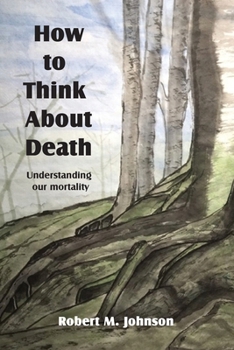How To Think About Death: Understanding Our Mortality
How should we think about death? What happens to us when we die? At some point in life, this seems an inescapable question, quite as though "It searches us out."
In this book, we will think through some of the most basic ideas about death. Heaven, Reincarnation. Nothingness, and the idea that death is what it appears: we die, become a corpse and eventually disappear.
What we see when we study such ideas is a very fundamental distinction. Some ways of thinking about death conceive of it as a transition, some as an ending.
In both Eastern and Western thought, there are major traditions that conceive of death as a transition. The ideas of heaven and hell, rebirth and reincarnation, are examples of such thinking. And there is also the idea that once dead, we merge with all things, much like a drop of water in the ocean. Or that at death, we cease to exist altogether. In all these approaches, our attention is directed toward what comes after we die. I invite you to think about death differently.
Suppose we focus instead on the idea that death is an ending. We do not continue. This is a moral perspective, since it puts in focus the life as a whole.
There is a popular phrase that often comes up in discussions about death: "death is a part of life." It is meant as a corrective to common anxieties about dying, a reminder of the biological function of death, of how one living thing gives rise to another, and so, how life and death are intertwined. It is intended to discourage us from thinking of death as the enemy of life.
If I were to suggest a catchphrase, it would be "death is an ending, not a transition." Consider that the message of this book.





